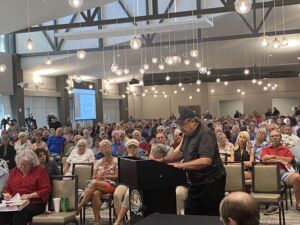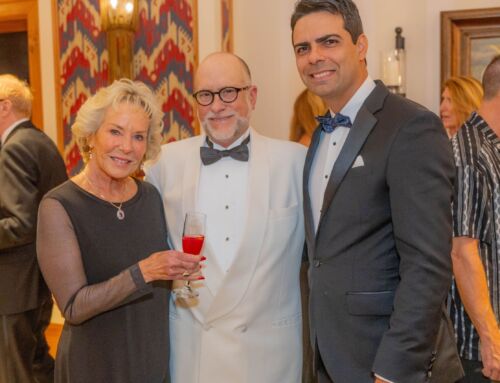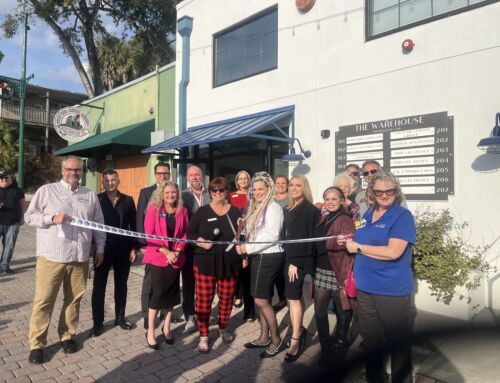April 15, 2025
Leesburg Commissioners Reject Annexation Moratorium After Heated Debate

By Frank Stanfield
Leesburg Commissioners Reject Annexation Moratorium After Heated Debate

City Commissioners Monday shot down the idea of adopting a moratorium on annexing land for new homes in a 4-1 vote before a packed, sometimes raucous crowd.
“It’s bad economic policy,” Al Minner, the city manager, told the 300-plus people at the Venetian Community Building. In a power point presentation packed with numbers and charts, he also contended that it was of “questionable legality,” and that the measure, proposed by Commissioner Jay Connell, would have “unintended consequences.”
One of the results is that it would send the wrong message, according to business people.
“Why hang a sign that says Leesburg is closed for business?” Dan Magruder, CEO of Romac Building Supply commented. He cited jitters on Wall Street and the bond market and fears of recession as reasons not to make a change. Romac, which has been in business for 80 years, employs hundreds of people.

But it was talk of traffic jams that really roused those who lined up to speak, sometimes to thunderous applause and an admonition by Mayor Alan Reisman to show respect.
“There are a lot of rumors,” Connell cautioned. The proposed “pause,” as he put it, “does not stop growth.” He proposed stopping annexations until January 2027.
People who have received approval to build could still get permits, and it would only apply to homes, not commercial buildings.
There were 25,623 homes approved by 2024. “It’s probably getting closer to 30,000 now,” Connell says. There are currently 16,281 homes in Leesburg. There is enough construction to keep workers busy for years, he adds. A pause would give the city a chance to take a step back and see how growth will impact the area and the city’s ability to provide utilities.
No one suggested that traffic is not an issue.
Drivers treat the speed limit as a suggestion, a resident of Legacy commented. “There have been several accidents, rollovers, and a dead pedestrian.”
U.S. Highway 27 and County Road 48 need to be widened, she says.
More than one described area traffic as “insane.”
Bill Polk, who was a city commissioner in the ‘90s, says it takes him 30 minutes to get to his office from home a mile-and-a-half away.
“Listen to the people who voted for you,” he urged commissioners. Many in the crowd can’t vote for commissioners because they live in unincorporated areas with “the city in my backyard.”
Some things are beyond city authority, including roads and schools. Builders pay impact fees to the School Board, and everyone pays school and county taxes. Money earmarked for roads is often spent in unincorporated areas.
County Commissioner Leslie Campione, who has debated Minner in the past, addressed the Commission.
“We don’t have a big pot of money to spend on projects. Maybe we need a new paradigm for transportation.”
Many of the annexations in Leesburg are on two-lane roads, Campione noted. She also went over a long list of county services that serve everyone, including the jail, court services, and the tax collector.
Many who spoke talked about the need for joint planning with the county and the School Board.
“Developers may need to pay more,” says City Commissioner Mike Pederson. “People come to me and say we need more roads and I say I can give you more roads — if you want me to raise your taxes.”
The state is not considering any road changes for Lake County in the next five years, which is “crazy,” he says.
Not only are more than 1,200 people a day moving to Florida but they are coming to Central Florida, City Commissioner Jimmy Burry pointed out. The fastest growing county is Sumter, thanks to the Villages, number six is Polk, Lake is 11th and Marion is 13th.
Within Lake County, the bulk of growth is in the south, in Clermont, Groveland and Minneola.
City Commissioner Allyson Berry also voiced concerns about having a moratorium. Growth pays for things like community redevelopment in blighted areas.
Minner has said the state Legislature is a key driver of growth by adopting such measures as homestead exemption and no state income tax. Lawmakers are even toying with the idea of doing away with property taxes.
Much attention is focused on the high number of approved planned unit developments. PUDs allow more flexible mixed uses, but it is a planning tool not a guarantee. Property owners must still get permits from the state, water district and other agencies.
City Attorney Grant Watson said a moratorium would not be legally binding. It would, however, send a signal to property owners that the city is not interested in annexations.
The Commission has the right to say yes or no to annexations. “I’m not willing to give that up,” Jimmy Burry said.
Frank Stanfield has been a journalist for more than 40 years, including as an editor and reporter for the Daily Commercial, Orlando Sentinel and Ocala Star-Banner. He has written three books, “Unbroken: The Dorothy Lewis Story,” “Vampires, Gators and Wackos, A Florida Newspaperman’s Story,” and “Cold Blooded, A True Crime Story of a Murderous Teenage Cult.” He has appeared on numerous national and international broadcasts, including Discovery ID, Oxygen and Court TV. He maintains a blog at frankestanfield.com. Stanfield graduated with a political science degree from the University of North Florida and a master’s in journalism at the University of Georgia.








































